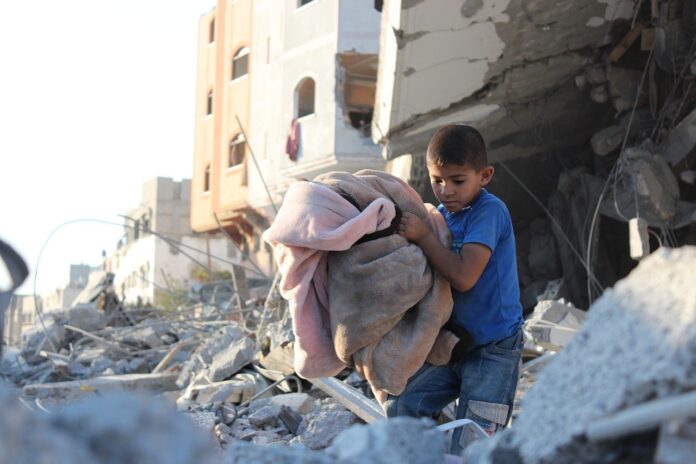On December 10, the 75th anniversary of the adoption of the Universal Declaration of Human Rights, we, as the Justice and Human Rights Foundation, reiterate our commitment to this landmark document and the universal protection of human rights around the world. As emphasized in the Universal Declaration of Human Rights, human rights are inalienable rights for every person in the world, regardless of race, skin color, gender, language, religion, political opinion, social group, income group, status, place of birth or place of residence.
After two world wars and local and internal conflicts, this declaration was adopted in 1948 with a common decision for states and societies all over the world to accept and implement equality between people, fundamental human rights and freedoms, human dignity and justice between people. In this context, states changed their constitutions and laws; international treaties, conventions and protocols have been made; states and international organizations have established special institutions, and non-governmental organizations working in this field have emerged. Many fundamental human rights, from the rights to life, freedom and security to the rights to work and education, have been declared as inalienable rights in this declaration with 30 articles.
Considering the 75 years that have passed and all the work that has been done, I wonder how much progress we have made regarding accepted fundamental human rights. In fact, it is more appropriate to ask: Have we made progress? Let’s leave aside rights such as the right to education and work, have we been able to implement that the right to life, which is the most important and primary right and included in the 3rd article of the declaration, is indispensable for every individual?
While we defend the rights of people in our own country, social group, ideology or belief group, such as “the right to enjoy the arts” in Article 27, do we defend the rights of hundreds, thousands and even millions of individuals in different parts of the world who cannot even exercise the most basic “right to life”? Do we raise our voices against the violation of primary and most vital human rights, such as the individual or collective killing, imprisonment, torture, inhumane treatment or exile of babies, who have just opened their eyes to life, children, women, the elderly, and other people wherever they are in the world? Of course, it is very important to defend “the right to enjoy the arts” of people close to us. However, defending “the right to life” of millions of people, even if they are not on our side or even on the opposing side, should be very important for all of us.
Natural disasters in different parts of the world in recent years after some reasons such as climate change, political turmoil in different countries affecting the world, and diseases that endanger everyone’s health by traveling all over the world like a village in a short time have made it clear that we should not be selfish, especially when it comes to basic human rights, and that we are all people living in the same boat and affected by each other.
No state, society, group, organization or terrorist organization can put forward a legitimate excuse for the deprivation of the right to life, in other words, killing, imprisonment or exile of babies, children, women, the elderly and other people. If, as the world community, we want to make progress in the field of human rights on the 75th anniversary of the Universal Declaration of Human Rights, everyone, from ordinary citizens of the world to the highest administrators of the states, must first oppose the violation of the right to life and the right to liberty and security of person expressed in Article 3, do not accept the excuses shown, and try to put an end to the violations of rights as soon as possible.
Unfortunately, every day, thousands of people are injured, killed, imprisoned, exiled, deprived of their liberty or deprived of their security rights by some states, groups or terrorist organizations. Those who can prevent these violations are primarily free, democratic states that have been able to implement human rights with a large majority; in fact, it is those who govern these states and other politicians. It is incumbent on us as ordinary citizens to ensure that administrators and politicians take a position against these violations and do what is necessary. Thus, it becomes clear what everyone, from an ordinary citizen of the world to the top administrators of the state, can do in the face of these violations such as injuries, deaths and exiles. Naturally, international institutions and non-governmental organizations are also on this list of responsible. Another most important institution in this regard is the international media. While the international media is expected to be a free, impartial and equal defender of human rights, it is observed that, with some exceptions, it generally falls far below this expectation.
The 75th anniversary of the adoption of the Universal Declaration of Human Rights shows us that it is becoming more and more important for everyone in the world, from every individual to states, international media and non-governmental organizations, to advocate for human rights. As the Justice and Human Rights Foundation, an independent and impartial non-governmental organization established to operate in the field of justice and human rights, our wish is to build societies that respect human rights all over the world.





